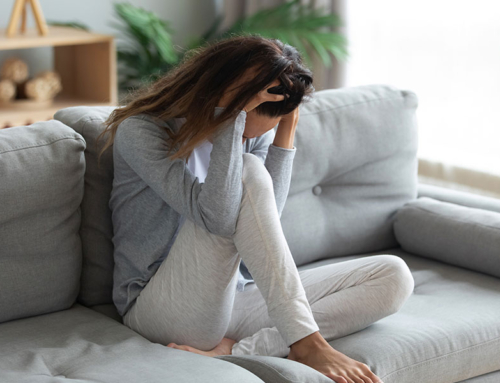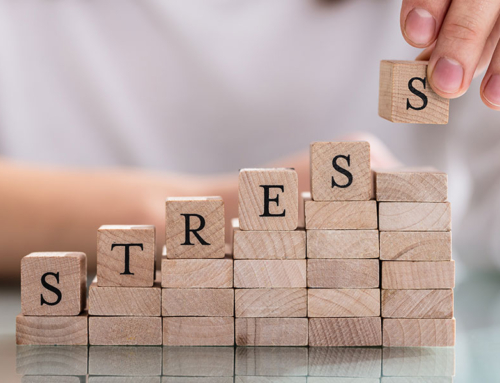Anxiety and the Coronavirus
What is anxiety?
Anxiety is a normal reaction to a stressful or situation of uncertainty. It is, in fact, an adaptive mechanism which equips the body in coping with a situation that requires a state of alertness and concentration so that we are able to overcome the challenge that lies ahead.
In fact, all the sensations associated with anxiety often terminate shortly after the particular situation that has caused it has ended: such as an examination, an oral presentation or a job interview.
Nevertheless, the intensity of the anxiety’s reaction may be disproportionate together with the duration of its symptoms and could be prolonged, with its consequent impact in carrying out daily activities,
When anxiety reactions become too frequent and/or intense, and/or are not adapted to the situation in which the individual is found; daily activities are therefore affected, and as a result become an anxiety disorder.
Anxiety disorders are one of the most common reasons for consultation in mental health services. In fact, it is estimated that more than 15% of the general population will suffer some kind of anxiety disorder, throughout life.
What are the symptoms of anxiety?
The emotional reaction to anxiety is observable at three levels:
Cognitive: related to the emotional experience, is characterised by feelings of discomfort, worry, insecurity, stress, hypervigilance, feeling of loss of control, fear and perception of strong physiological changes (cardiac, respiratory, etc.).
Physiological: encompassing the bodily changes that generate the activation caused by anxiety, the Autonomic Nervous System and Motor Nervous System being the main systems that are activated, even though others such as the Central Nervous System, the Endocrine System and the Immune System are also activated.
Some of the changes brought about by anxiety are perceived as increased breathing and heart rate, sweating, muscular tension, peripheral skin temperature, gastric sensations, etc.
In fact, the persistence of these physiological changes can cause a number of transitory psychophysiological disorders like headaches, insomnia, muscle spasms, erectile dysfunction, gastric disorders, etc.
Conductual: are observable behaviors such as restlessness, repetitive movements, hyperactivity, communication difficulties (eg stammering), tension in facial expression, consumption of substances (food, tobacco, drink…), crying, etc.
Causes and maintenance of anxiety.
Several factors influence in the origin and the maintenance of anxiety, which can be grouped into the following three categories:
Predisposition factors: which make the person more prone to developing an anxiety disorder. The causes are still unknown, although much research has demonstrated there are some groups at risk:
Depression, Severe trauma experience, Substance abuse, Irritable colon syndrome, Continual stress, Genetic factors.
Activating factors: any event or situation that arouses our alert system. These factors may include internal: Self-generated such as fear of job loss, stress before an important exam, etc. · External: such as alcohol or drugs, it is worth mentioning that this factor is both of maintenance, activating and predisposition.
Maintenance factors: among the factors that should be mentioned are the failed strategies coping with anxiety, precisely because they contribute to its rise and maintenance, producing negative feedback: avoidance and fleeing behaviors that reinforce the existing fear are such cases; as well as the reaction to the feeling of breathlessness combining faster and shallower breathing, which triggers hyperventilation.
Relaxation techniques
One of the methods which has proved to be effective in reducing and handling the reaction to anxiety are relaxation techniques, through this practice, along with the proper training, which are an effective tool support, reducing the level of activation of our body is accomplished, when dealing with anxiogenic situations.
In response, we have created some free relaxation MP’3 downloads from our dignity street mental health professionals to help you or a loved one mitigate the increased stress and anxiety.
What happens to the body when you relax?
When you relax your body responds in a number of ways, such as:
- Your breathing becomes deeper and slower.
- Your heart rate decreases and slows down.
- The blood flow to the extremities increases.
- Your hormones become more balanced.
- Your overall metabolism is slowed down.
These elements of relaxation are beneficial for both your physical health and your mental well-being, but what’s the best way to experience deep relaxation?
Free relaxation MP3 Downloads
Just lay back and relax and allow yourself to be transported to the wonderful world of relaxation.
The 15-minute supercharger.
As the name suggests this MP3 is exactly 15 minutes long and will give you some instant quality recharging time should you require it. (This MP3 should only be listened to on stereo headphones)
We also have on the site articles that provide helpful information and expert tips for managing anxiety during this difficult period. We encourage you to share these resources with family, friends and with your Facebook and Twitter communities.
Some of the symptoms of stress and anxiety may include feeling nervous, worried and tense which in turn can affect your appetite and your sleep patterns. In some cases, anxiety can become so overwhelming that it leads to panic attacks, causing further fear and worry, but our relaxation and supercharger MP’3 will help to alleviate some of the symptoms.
Relaxation preparation
Find a comfortable place If possible where you will not will not be disturbed, choose a comfortable position in which to relax if you are sitting in a chair, try and find a comfort position that will support your head, sit with your legs uncrossed and slightly apart and place your hands in your lap or the arms of the chair. If you are lying down keep your legs uncrossed and allow your arms to rest either side of your body.
When you first play your MP’3 research has shown that for maximum benefit they should be listened to once a day, on stereo headphones, and played for a minimum of 21 days
To download the MP’3 please follow this link. Do not play the MP’3 whilst driving or operating machinery.
Medical Advice Disclaimer:
Triangle Mental Health Foundation is a charity whose purpose is to promote sound knowledge and best practice in promoting Stress Prevention and Well-being. Triangle Mental Health Foundation advises If you think you may be suffering from any medical condition you should seek immediate medical attention
We will inform you each time we release a new download so you can listen to them privately in your own time.
© Triangle Mental Health Foundation 2022
Operating Hours
| Mon | 10:00am – 16:00pm |
| Tues | 10:00am – 16:00pm |
| Wed | 10:00am – 16:00pm |
| Thur | 10:00am – 16:00pm |
| Fri | 10:00am – 16:00pm |







